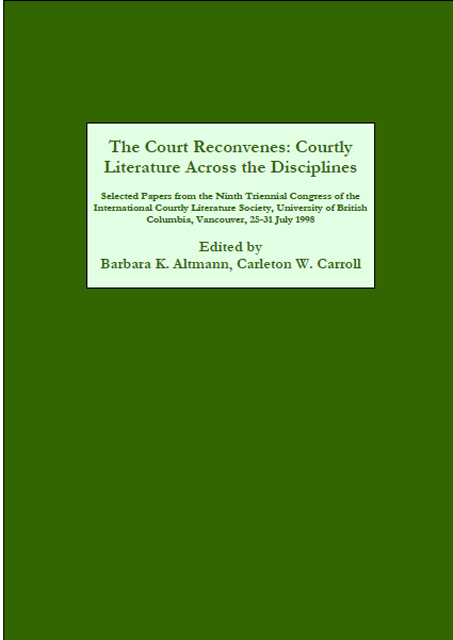 The Court Reconvenes
The Court Reconvenes Incest and Identity: Family Relationships in Emaré
Published online by Cambridge University Press: 31 March 2023
Summary
Incest, like identity, involves a tension between sameness and difference; where identity implies the establishment of categories and definitions, however, incest implies their collapse. Identification means both identifying as, placing the subject within presupposed categories, and identifying against, differentiating that subject from others. Incest dissolves boundaries and confuses categories, and so can be regarded as a denial or negation of identity. It is therefore fitting that the late fourteenth-century Middle English verse romance Emaré begins with the threat of incest, for Emaré can be read as a narrative of lost and recovered identity, and in examining the ways in which incest subverts identity we can also explore some ways in which this text defines and affirms the structures on which identity depends.
The idea of incest presupposes certain social categories and relationships, kinship structures that identify a person in terms of position within a family and prescribe the conduct expected of that person towards others. Again, these relationships depend on the recognition of sameness and difference: a woman and her daughter share a common identity through kinship but occupy different positions in the family system and are therefore expected to stand in different relationships to, say, a man who is the woman's husband and her daughter's father. Incest transgresses these categories and subverts these relationships; a father who marries his daughter, for example, denies both their kinship and her difference, her prerogative to marry outside of the family. Thus incest undermines both the collective identity of the family and the carefully differentiated identities of its members, pretending difference where it should recognize affinity and establishing affinity where it should assert difference.
Incest riddles illustrate this point well because they typically depend on a confusion of identities. An Old English riddle in the Exeter Book, for example, begins:
A man sat at wine with his two wives
And his two sons and his two daughters,
Dear sisters, and their two sons …
and ends by telling us that the total number of individuals in question is only five. The answer is “Lot and his family”; the riddle works because the nine identities in question, kinship terms that ordinarily categorize different individuals, collapse into only five when we realize that Lot had children by his daughters, who are therefore also his wives, so that his sons are also his grandsons.
- Type
- Chapter
- Information
- The Court ReconvenesCourtly Literature across the Disciplines: Selected Papers from the Ninth Triennial Congress of the International Courtly Literature Society, University of British Columbia, Vancouver, 25-31 July 1998, pp. 179 - 186Publisher: Boydell & BrewerPrint publication year: 2002


